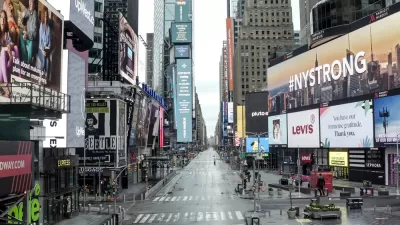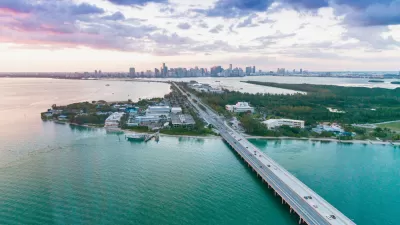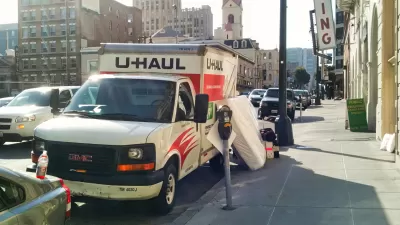A new analysis indicates that many big cities saw their biggest population declines in at least a decade, with suburbs also showing a slowdown in growth.

New data from the Census Bureau shows dramatic population losses in the 88 largest U.S. cities, writes Brookings senior fellow William H. Frey. A Brookings analysis “places these estimates in the context of recent decades’ trends, when America’s big cities experienced noticeable ups and downs. It then shifts the focus to the suburbs of major metropolitan areas, which—while benefitting somewhat from recent city population losses—tend to display growth slowdowns of their own.”
The article outlines the changes in big-city population growth since the start of the millennium, as the early years brought on a suburban boom followed by a slowdown in suburban growth during the 2007-2009 recession. “The pandemic began to affect city growth in 2019-20, and even more so in 2020-21—the first year this century when large cities in aggregate registered a population loss, declining by 1%.” Between 2020 and 2021, “Fourteen cities experienced their first population losses since at least 2010, including Washington, D.C., Atlanta, Denver, Houston, Minneapolis, San Diego, and Seattle.”
The analysis highlights the drastic impact of the pandemic. “Examining data going back two decades, there was no individual year that comes close to showing the population declines that these cities witnessed in 2020-21, alongside slower growth in their entire metro areas and suburbs.” But while the dramatic loss of population may be a pandemic-era blip, changes like the shift to remote and hybrid work signal that a “return to the city” is “less inevitable than it would otherwise be.”
FULL STORY: Big cities saw historic population losses while suburban growth declined during the pandemic

Planetizen Federal Action Tracker
A weekly monitor of how Trump’s orders and actions are impacting planners and planning in America.

Map: Where Senate Republicans Want to Sell Your Public Lands
For public land advocates, the Senate Republicans’ proposal to sell millions of acres of public land in the West is “the biggest fight of their careers.”

Restaurant Patios Were a Pandemic Win — Why Were They so Hard to Keep?
Social distancing requirements and changes in travel patterns prompted cities to pilot new uses for street and sidewalk space. Then it got complicated.

Platform Pilsner: Vancouver Transit Agency Releases... a Beer?
TransLink will receive a portion of every sale of the four-pack.

Toronto Weighs Cheaper Transit, Parking Hikes for Major Events
Special event rates would take effect during large festivals, sports games and concerts to ‘discourage driving, manage congestion and free up space for transit.”

Berlin to Consider Car-Free Zone Larger Than Manhattan
The area bound by the 22-mile Ringbahn would still allow 12 uses of a private automobile per year per person, and several other exemptions.
Urban Design for Planners 1: Software Tools
This six-course series explores essential urban design concepts using open source software and equips planners with the tools they need to participate fully in the urban design process.
Planning for Universal Design
Learn the tools for implementing Universal Design in planning regulations.
Heyer Gruel & Associates PA
JM Goldson LLC
Custer County Colorado
City of Camden Redevelopment Agency
City of Astoria
Transportation Research & Education Center (TREC) at Portland State University
Camden Redevelopment Agency
City of Claremont
Municipality of Princeton (NJ)





























